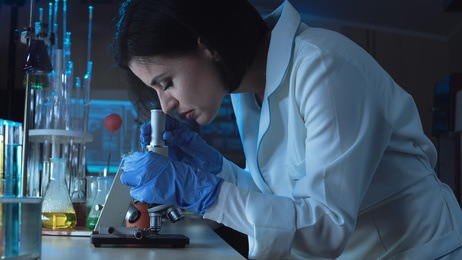UAMS geriatrics researcher receives $1.9 million for Alzheimer’s research
by August 8, 2023 10:47 am 336 views

Dr. Steven Barger, professor of geriatrics in the University of Arkansas for Medical Sciences (UAMS) College of Medicine, has received a five-year federal grant to support his research on the role of glucose transport in the progression of Alzheimer’s disease.
The project will receive $382,500 in funding for the current grant year and a projected total of $1,912,500 over the five-year term. The grant was awarded by the National Institute on Aging, a division of the National Institutes of Health.
Barger, a faculty member at the UAMS Donald W. Reynolds Institute on Aging, said the goal of his research is to test — and potentially treat — a newly discovered element of energy usage in the brains of Alzheimer’s patients.
Alzheimer’s disease is associated with a decline in the brain’s use of glucose, its most important fuel, Barger said. Support cells known as astrocytes shuttle glucose from the bloodstream for use by nerve cells deep within the brain tissue. However, research has shown that an astrocyte enzyme responsible for this shuttling action malfunctions in patients with Alzheimer’s.
Barger also highlighted the importance of a gene variant known as ApoE4, which has been linked to an increased risk of Alzheimer’s. Researchers theorize that ApoE4 contributes to glucose deficiency through its role as a regulator for other genes.
Barger’s study will examine how the regulation of genes affects glucose transport and delivery.
Furthermore, it will explore how glucose delivery is affected by interactions between astrocytes and other types of cells — particularly microglia, a group of immune cells responsible for many of the inflammation-related changes seen in the brains of Alzheimer’s patients.
His study will also attempt to identify chemical agents with the potential to reverse the glucose irregularities and serve as a treatment for Alzheimer’s.
“We have some clues about the precise mechanisms responsible for this drop in glucose delivery, and we hope that learning more about this process will identify a component that can be remedied with a drug or other treatment,” he said.
